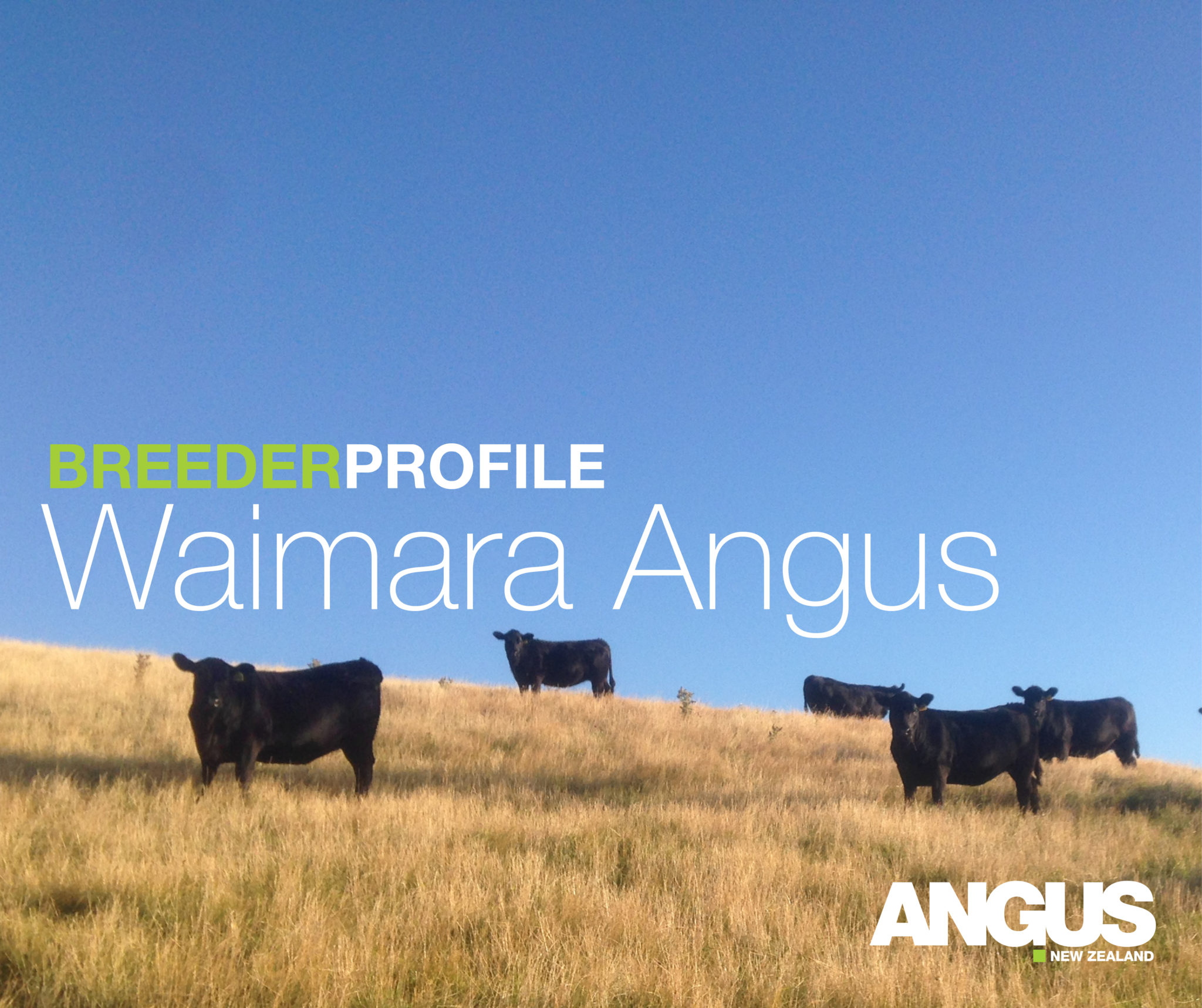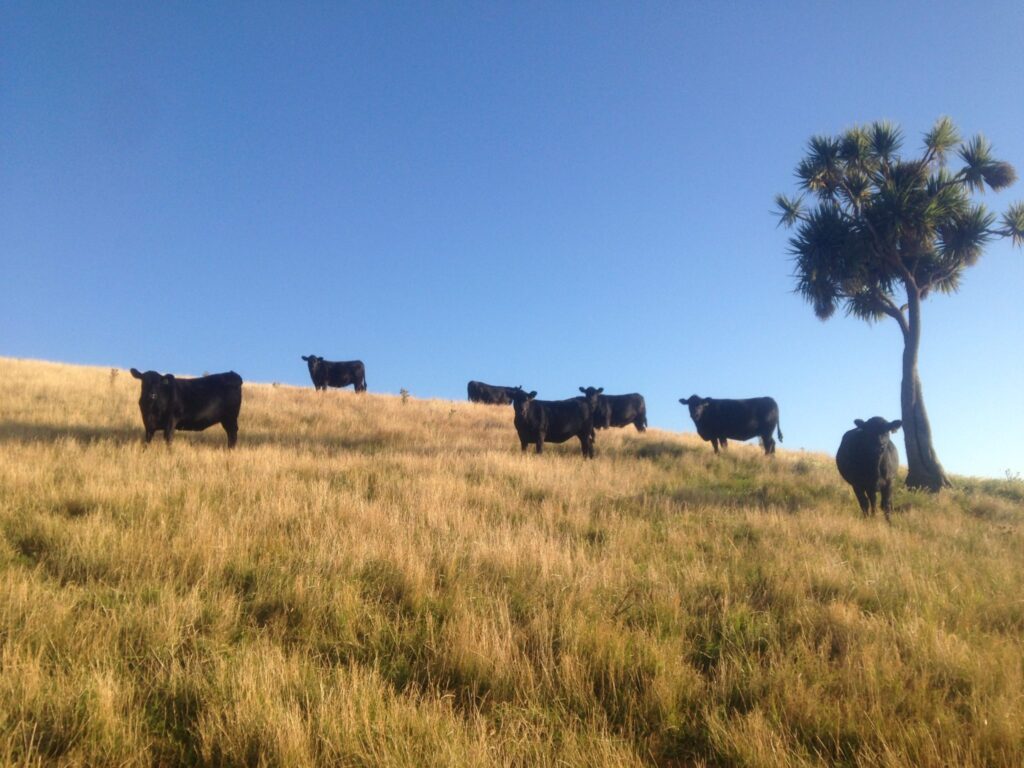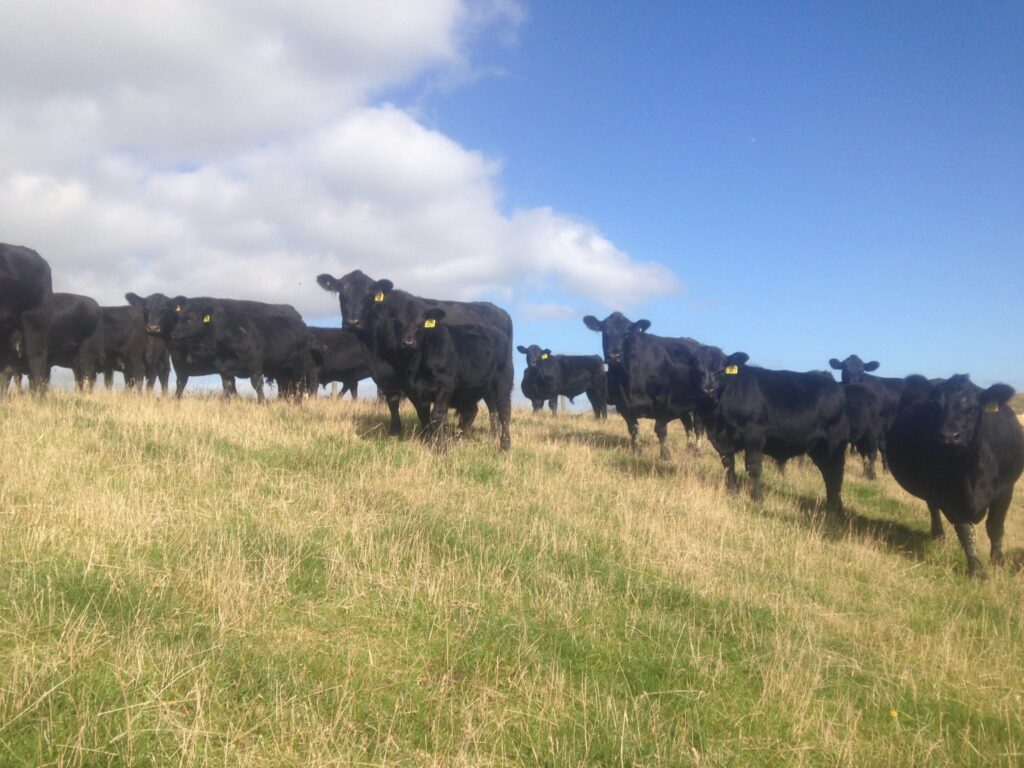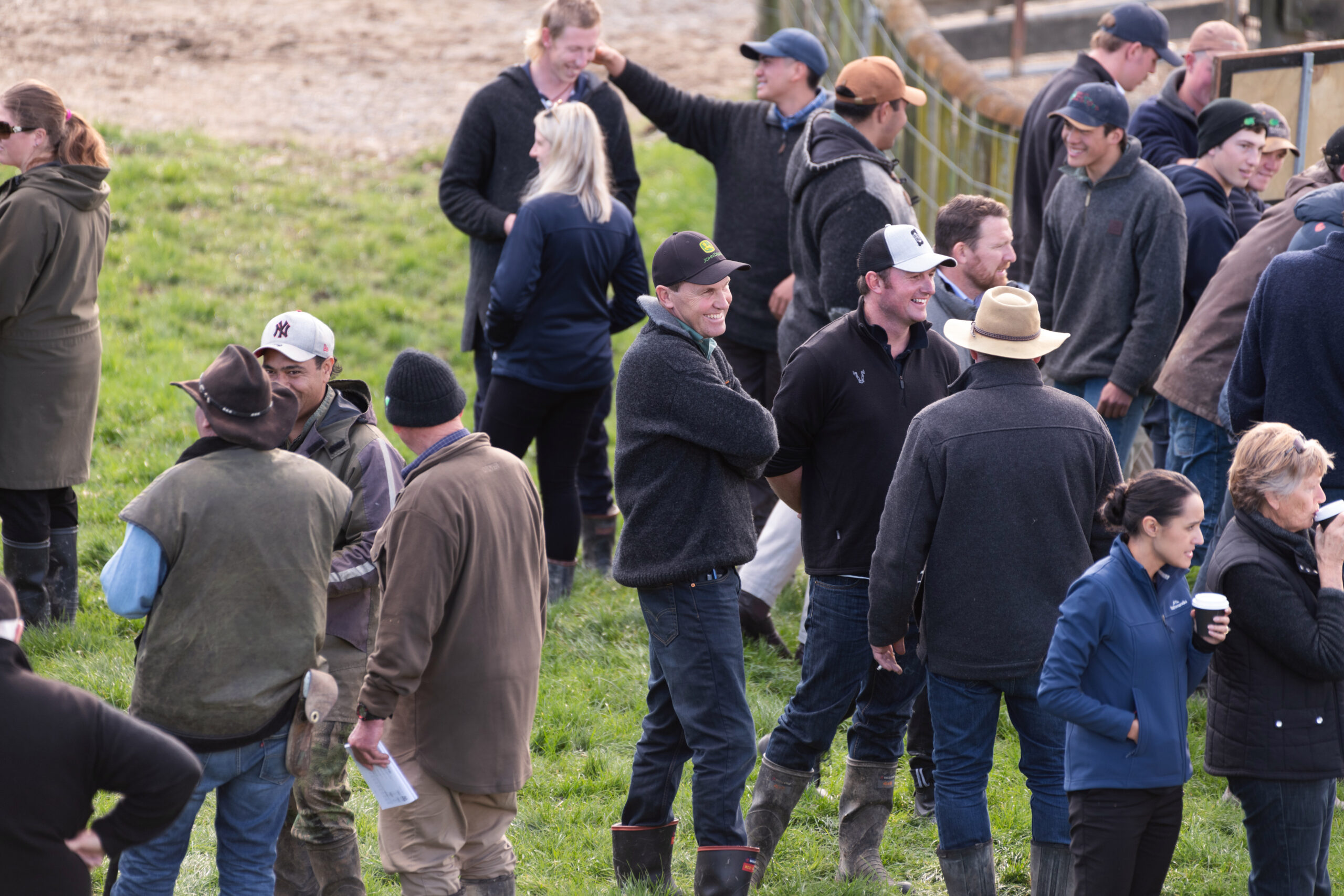
WAIMARA
ANGUS
FOR BETTER BALANCED BEEF
Breeder Profile:
Chris & Kate Pont
Words by
Natalie Campbell
FAMILY THE HEART AND SOUL OF WAIMARA ANGUS
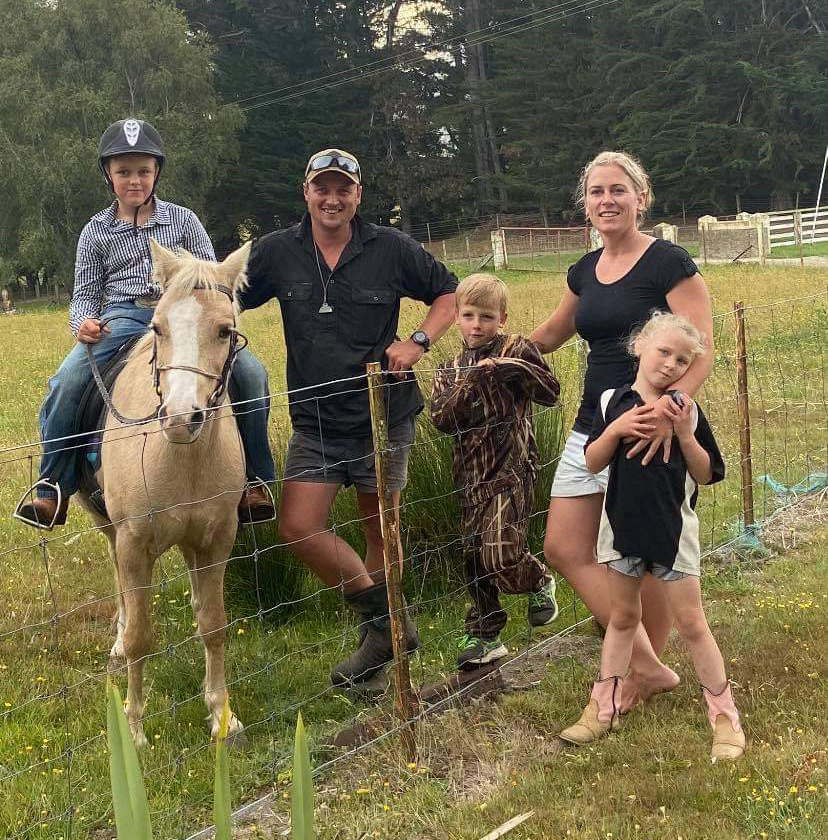
Three generations of the Law family are actively involved in the day-to-day life of Waimara Angus Stud in Otago and its family that is at the heart of the soul of the business.
Founded by Tom and Sally Law in 1988 the stud and business are now proudly being shared with their three children and nine grandchildren. But the connection to stud livestock, sheep and beef, reaches back another generation to Monty Ericson who also had a stud Angus herd and Romney flock.
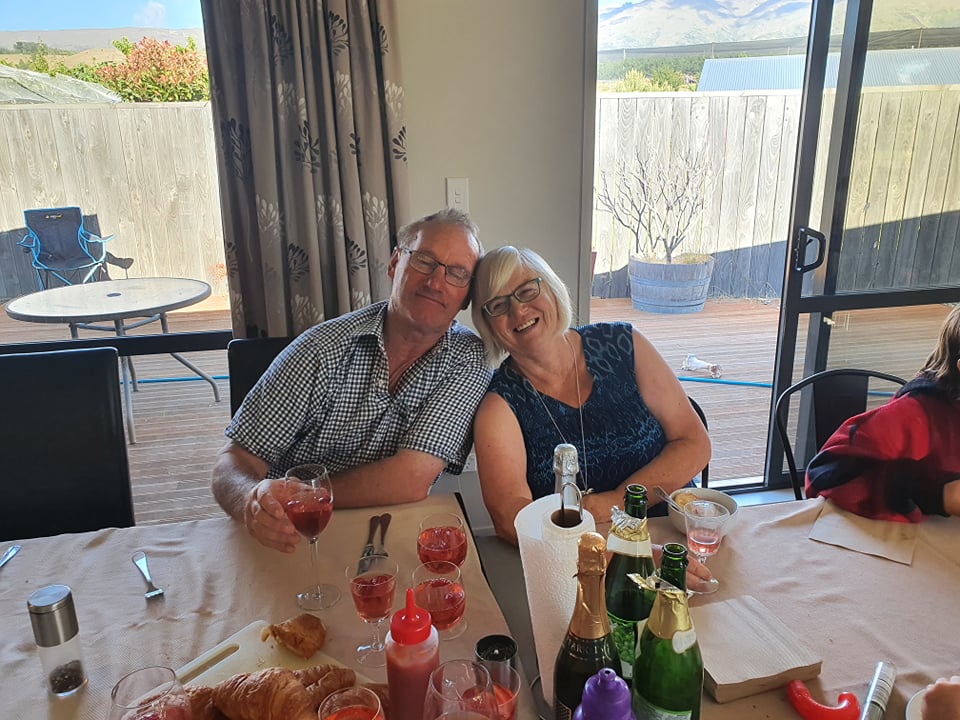
The family all agree, farming is their passion and helping family is their biggest driver when it comes to developing their business.
“We’d like to be in a position where we can help any of the family into farming, or anything else they’d like to do. It’s about family and that’s our biggest driver,” says Sally.
The Angus breed is firmly in the family’s DNA with Monty serving on the board of NZ Angus for 10 years and it was from a couple of his dams that the Waimara Stud was developed.
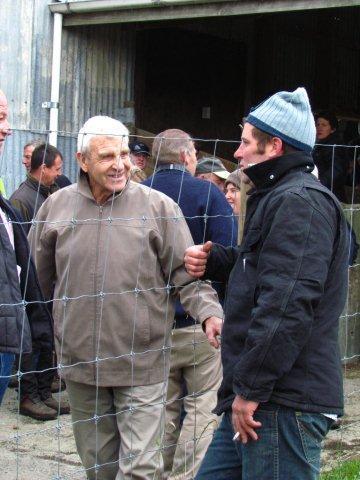
Kate says Monty (her grandfather) was still traveling with them to buy bulls when he was 80 years old.
Kate’s mum Sally says the fourth generation are already showing signs of being staunch Angus supporters.
“One of our grandchildren, she’s just three years old, has a saying, ‘Angus bulls for life’,” she says laughing.
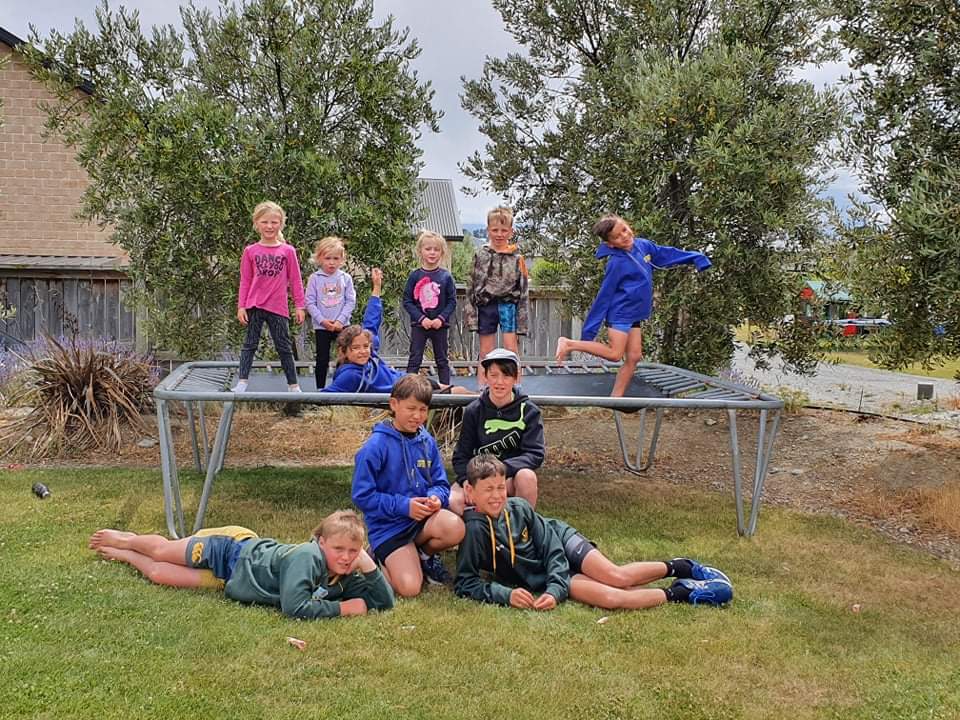
Originally founded on a property near Te Anau the stud herd was started with four cows from Monty’s Matanaka Stud and four cows from Cottesbrook Stud. These foundation dams were then followed by five more sourced from Te Mania.
It was in 2006 that the stud moved to a new lease block at Tumai, a 560ha coastal property in East Otago which experiences dry summers. In 2011 Waimara purchased about 30 cows from Braxton/Arahura Stud.
Then, after more than 30 years of leasing, in 2017, Tom and Sally and their family took the opportunity to purchase their own block – 600ha in Middlemarch on the Rock and Pillar (mountain range).
“It was a huge step, a dream come true,” says Kate, who with husband Chris live on the Tumai lease block with their three children. Both Kate and Chris are involved in the daily running of both properties.
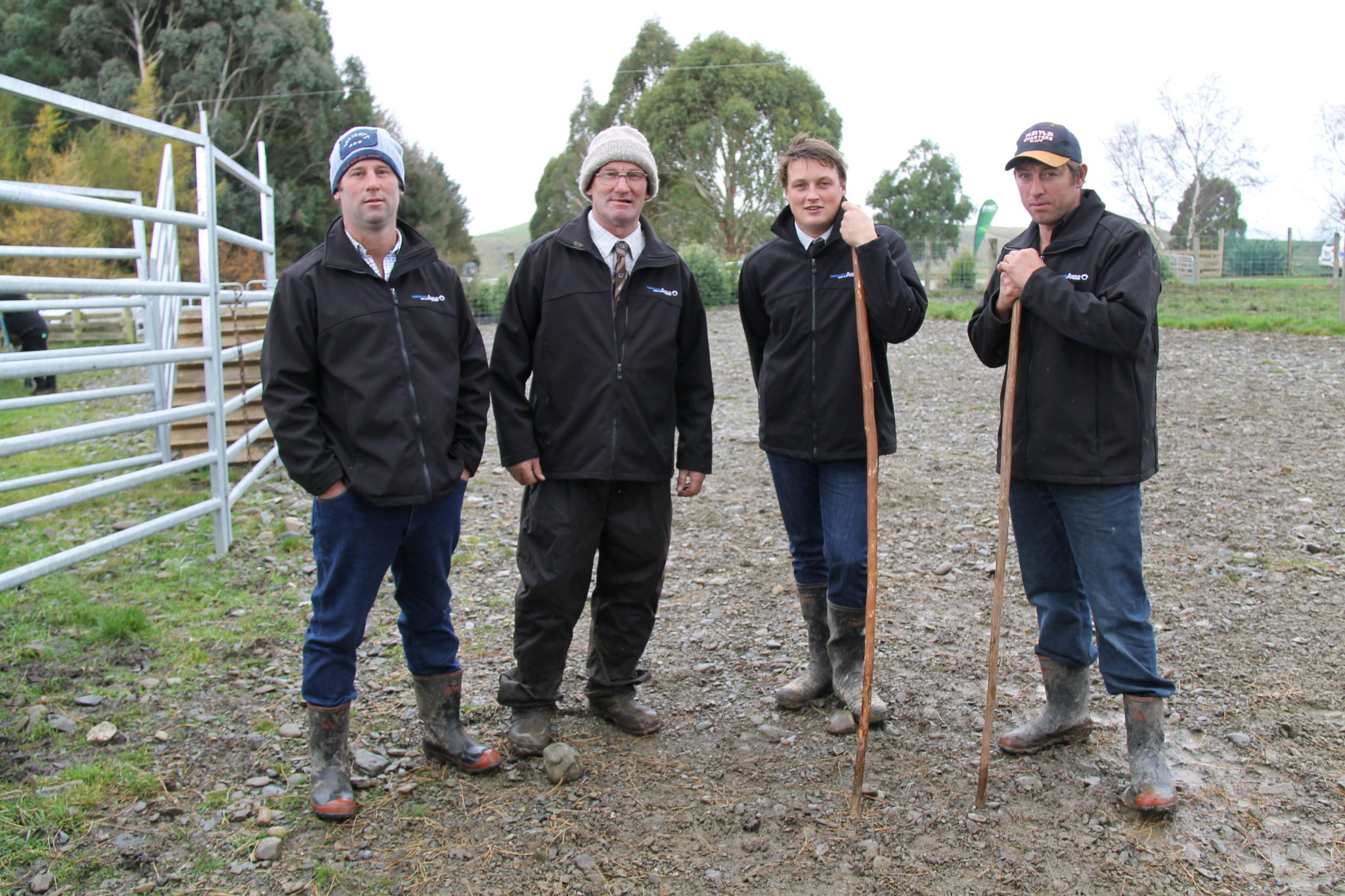
“Mum and Dad have leased farms their entire career and it was a massive step, to now have somewhere secure for the cattle to be continued.”
The family still leases the Tumai property, which is about an hour away and Tom and Sally live on 51ha, near Palmerston, where the bulls are grown out. Son Andrew and wife Jayne live and work at North Range Station in Lumsden with their two daughters. Andrew is manager for North Range and Jayne has a horse stud, Aparima Horse Services. Daughter Becky and her husband Gene Runga live in Dunedin with their 4 children. Gene is a builder, and Becky works for a mortgage broker.
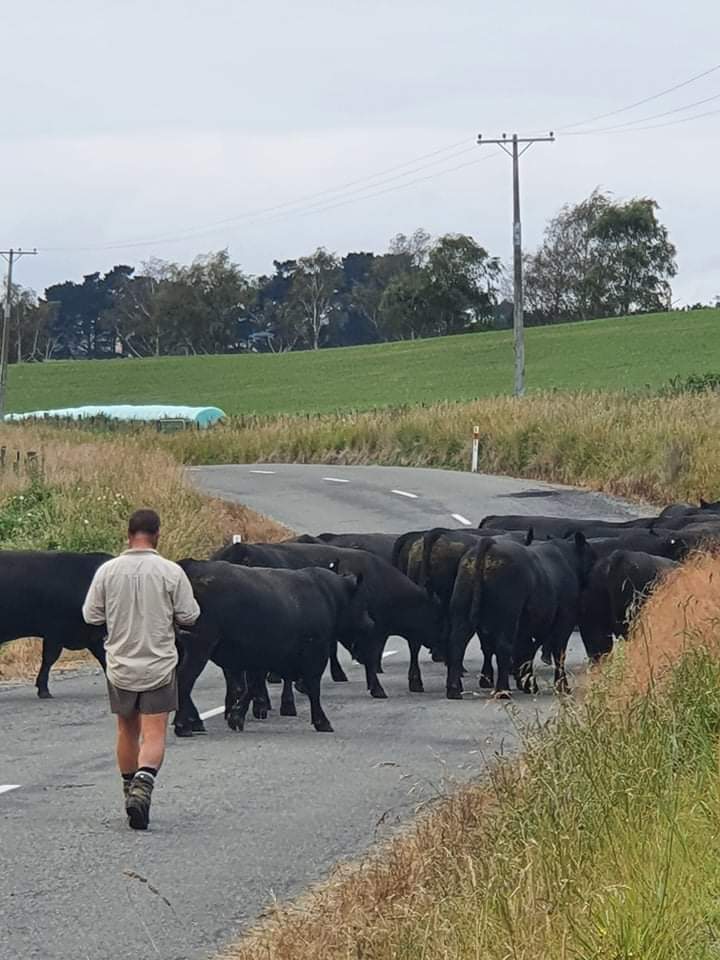
Both the Tumai and Middlemarch properties have quite different terrain – the lease block is coastal and easy to rolling country with steeper gullies while the purchased block is flats rising to steep native tussock country.
Both are summer dry with about 600-680mm of rainfall annually.
The land purchase has provided the security to grow the Angus herd.
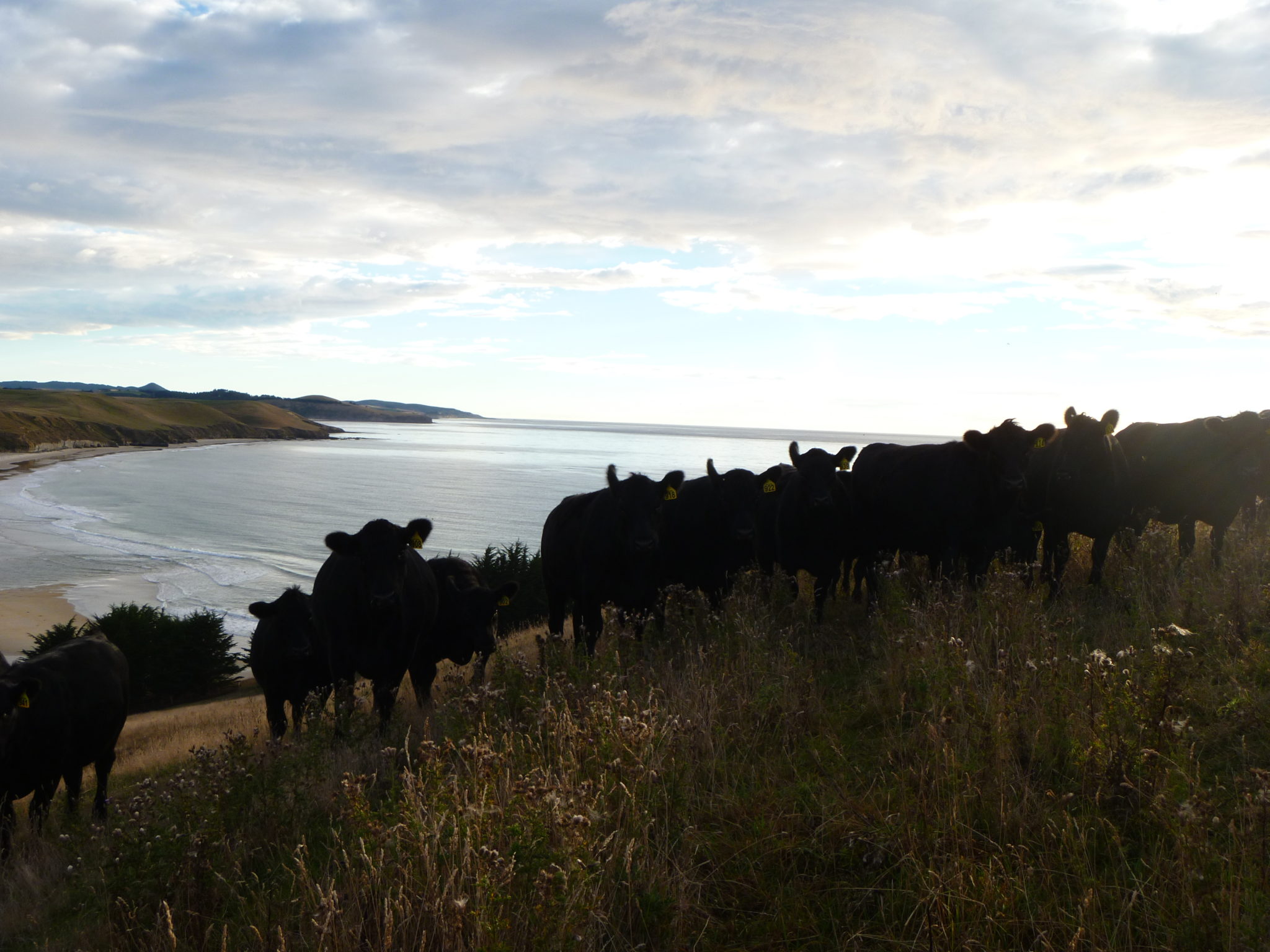
The stud herd consists of 200 in calf cows as well as heifers. The family also sell up to 30 rising two-year-old bulls plus yearlings annually.
Their bull sale is held in conjunction with Andy Denham’s Stoneburn Hereford Stud on his property.
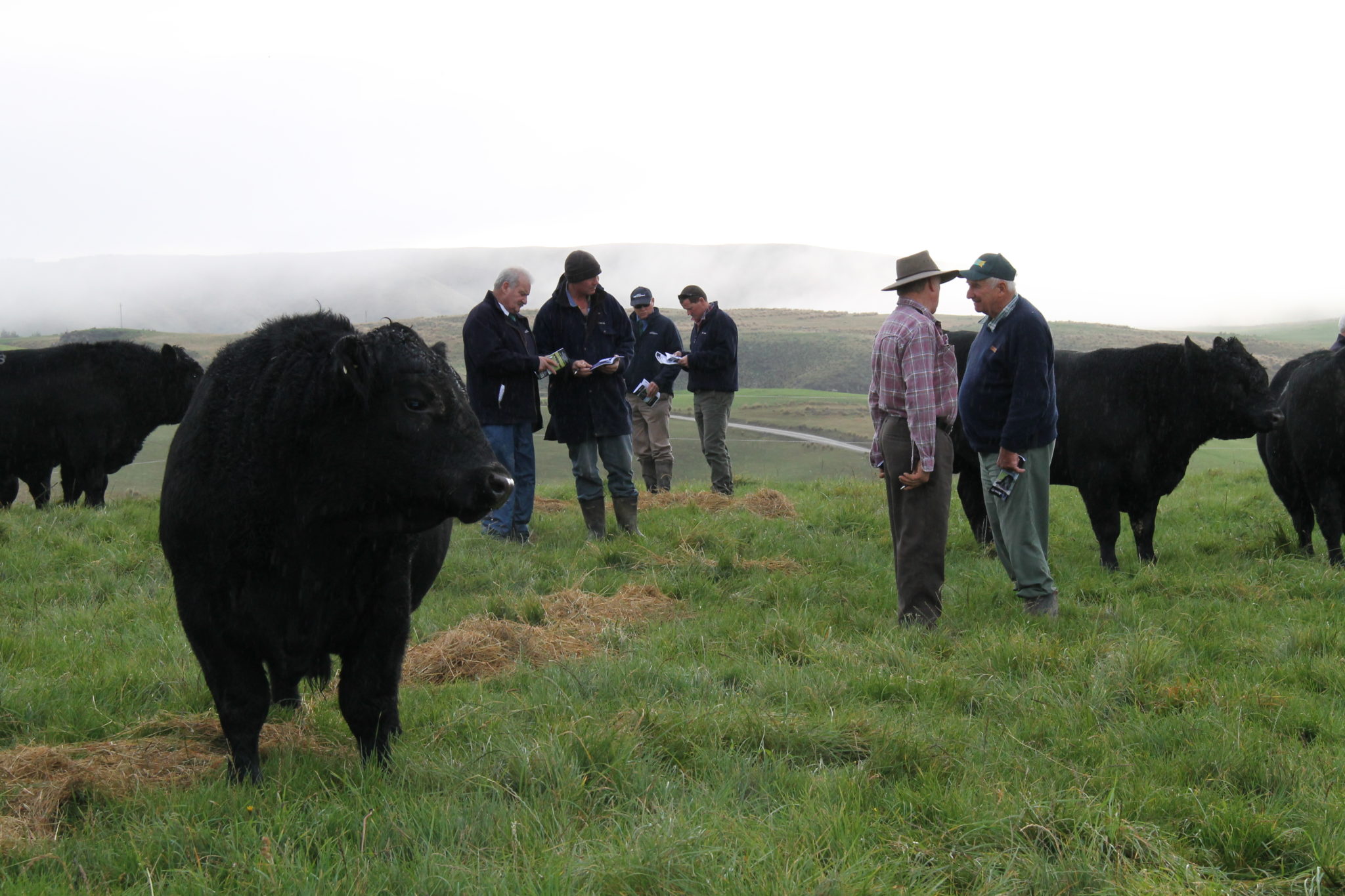
“This year marks our 10th sale, previously we sold bulls privately. It’s a great sale and works well for all of us,” Kate said.
The Waimara sale is early in the annual bull sale calendar, being held this year on Friday May 28th.
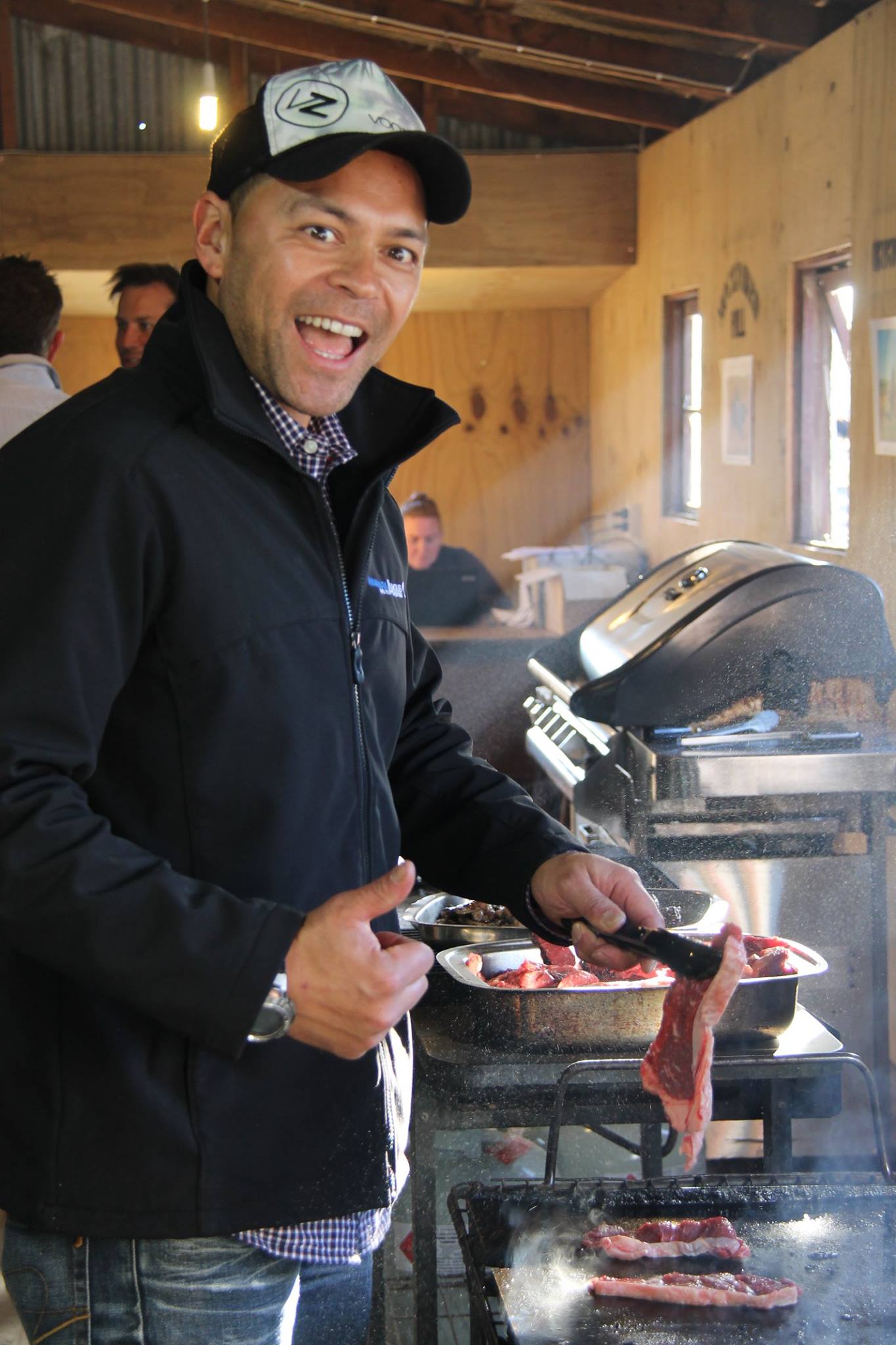
Sally said last year’s sale was challenging with so many unknowns caused by the Covid-19 pandemic.
“We didn’t know until the week before, if we were allowed a sale with 100 people. Normally the whole family supports the sale, but only four of us went.”
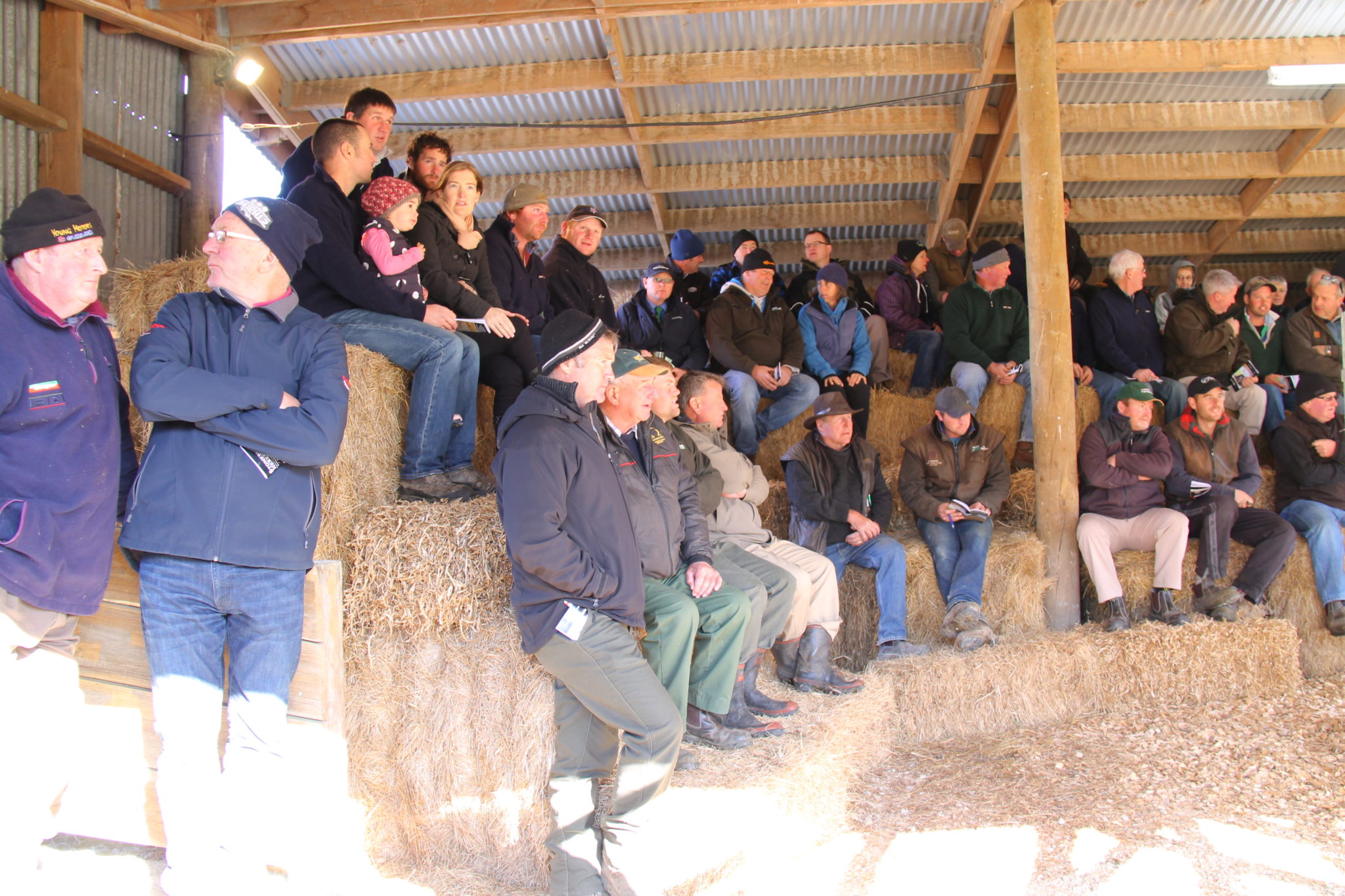
She said while it was challenging and they, like many other breeders, incorporated the online sale auction simultaneously to the on-farm auction via Bidr, it went well and the hybrid option is one they will continue to use.
The Waimara Angus team confess marketing their bulls is not something that comes naturally.
“We use Facebook and my husband Chris, and my brother Andrew are keen dog trailers so they do a lot networking,” says Kate.
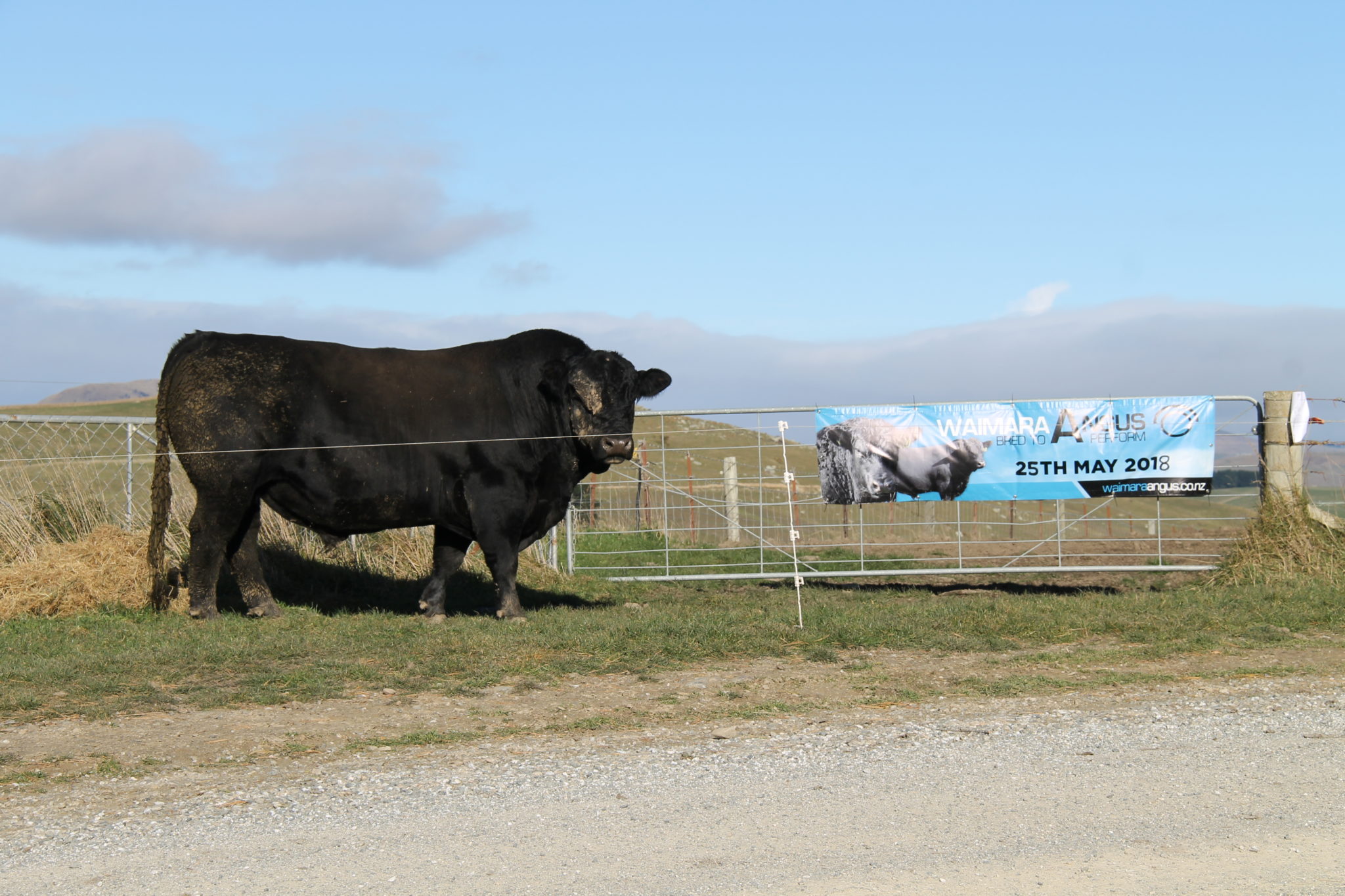
Tom says word of mouth has been invaluable.
“Our bulls are lasting and we are getting more and more clients.”
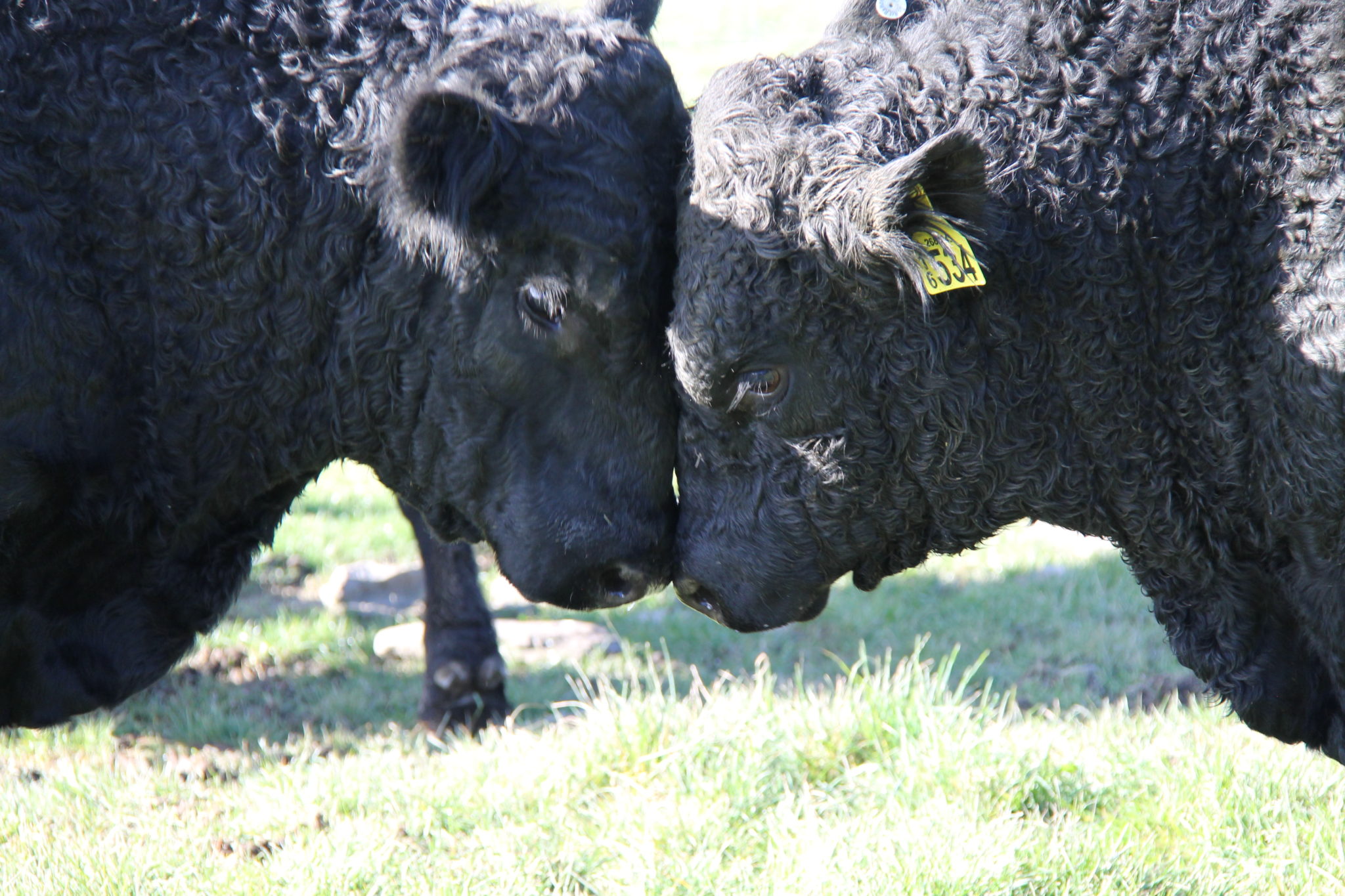
BACKING THEIR BULLS
The family also backs their bulls with a three-year money back guarantee on bull fertility and soundness (excluding injury).
“It’s a cash back guarantee for three years. We back ourselves and our bulls,” says Tom.
Waimara bulls have to be passed on structure, fertility and temperament by Tom, Chris and Andrew to make it into the sale catalogue. They are also semen tested by Xcell Breeding Services as close to the sale as possible and structurally assessed by an independent Angus NZ assessor.
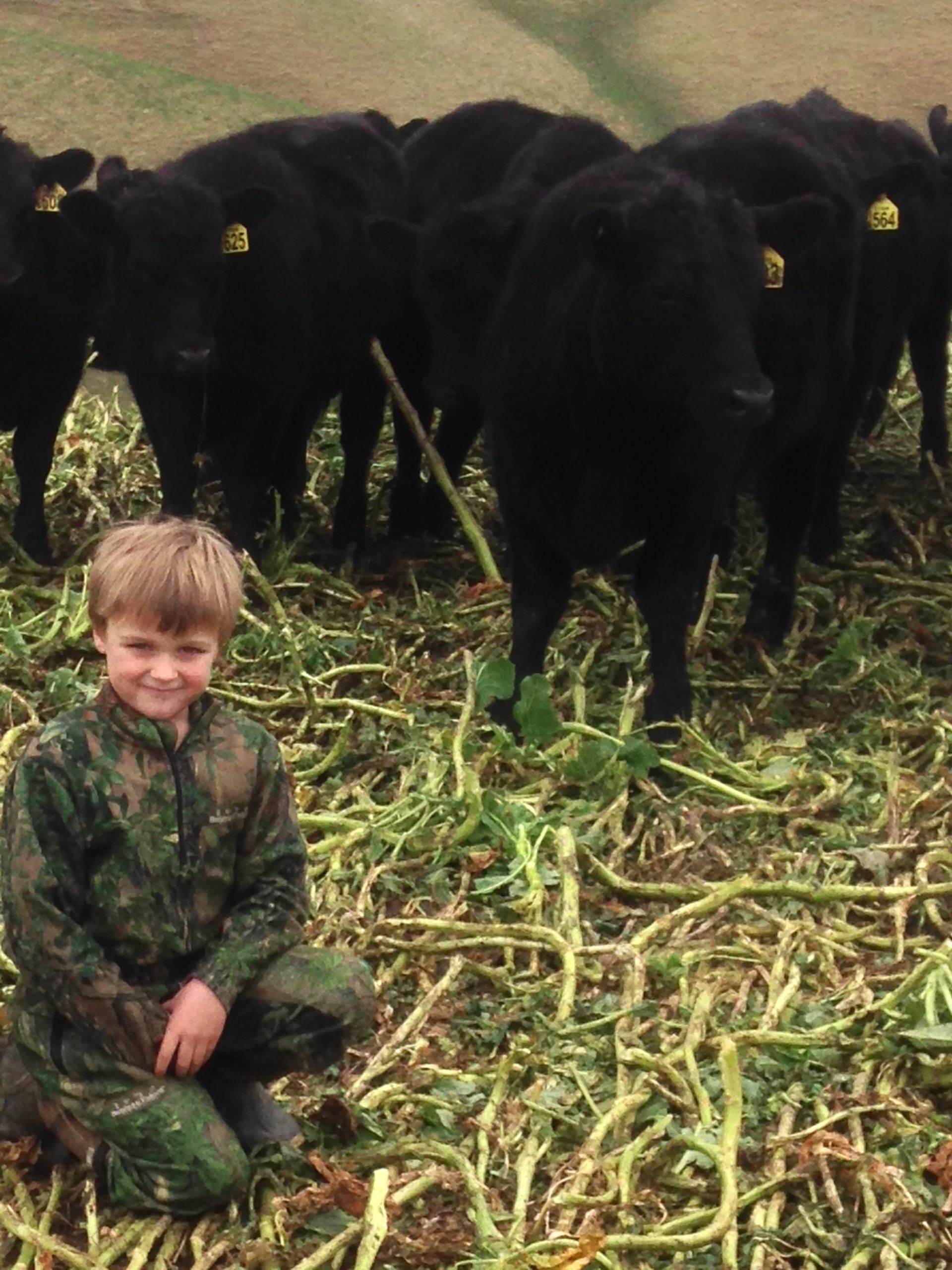
“We want people to be happy with our bulls,” says Kate.
Tom says their breeding philosophy is simple.
“Our number one aim at Waimara Angus is to breed structurally sound, fertile cattle. They need to not just survive but thrive in a wide range of environments.”
“We’re targeting a medium framed animal the figures and pedigrees fall in behind that.”
The family uses a lot of NZ genetics. In the early days they used imported genetics but have found that proven NZ bloodlines are giving them the results they want.
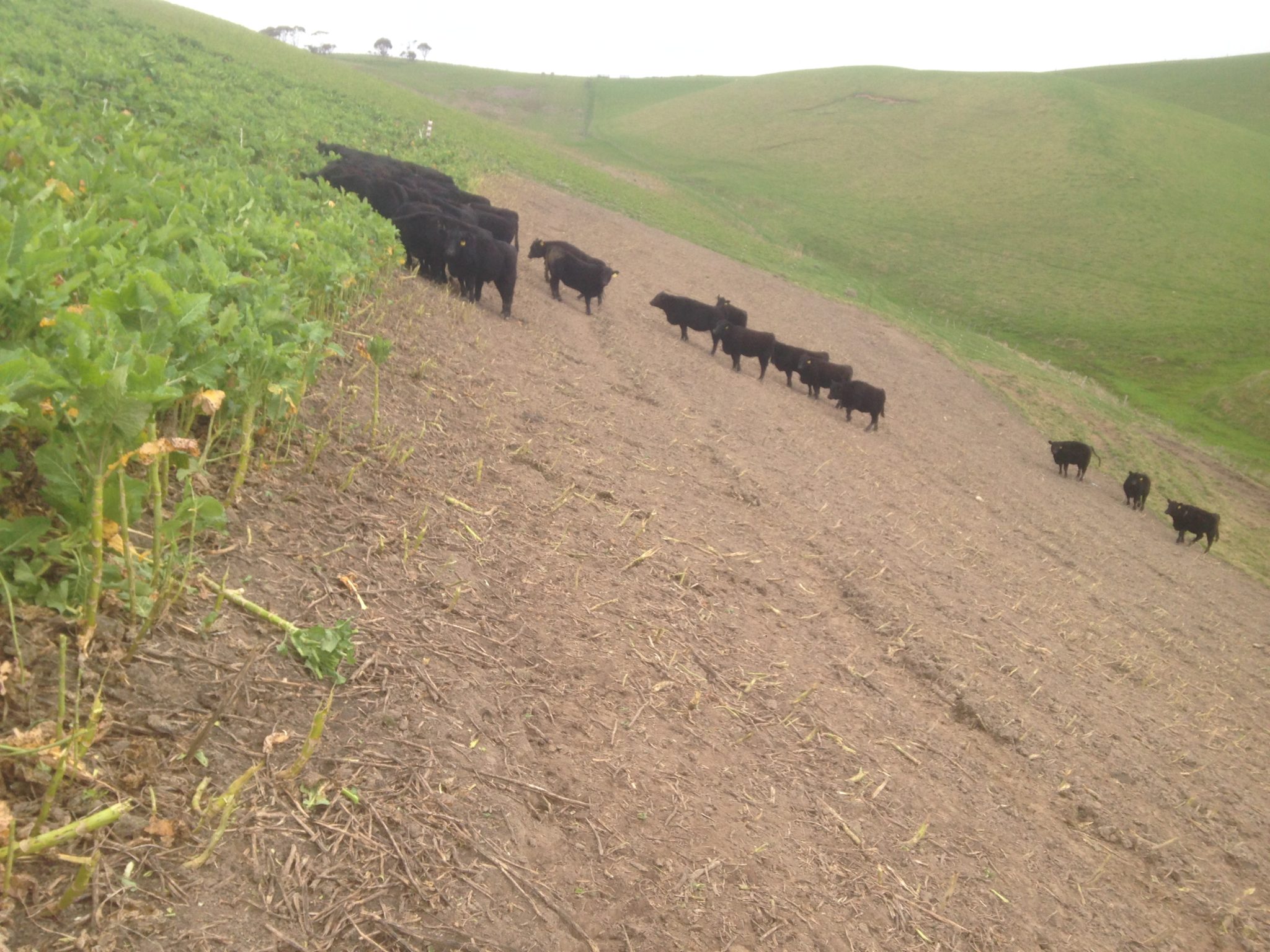
“We’re after a nice balanced package, we’re not chasing extremes or specific traits,” says Chris Pont, Kate’s husband.
PHENOTYPE HAS A SIGNIFICANT ROLE TO PLAY
Phenotype is a priority for the family.
“We work with the figures and they are a selection tool and they have their place. There’s a lot to EBVs and we feel it’s our job to understand and know them and breed bulls that suit our clients,” says Kate.
“We want to be breed average for every trait, but maternal cow weight and 400-day weight and positive fats are important to us,” she says.
She explains the 400-day weight is important because it helps their bull-buying clients reach their goals.
“Our commercial clients want progeny finished by 18 months.”
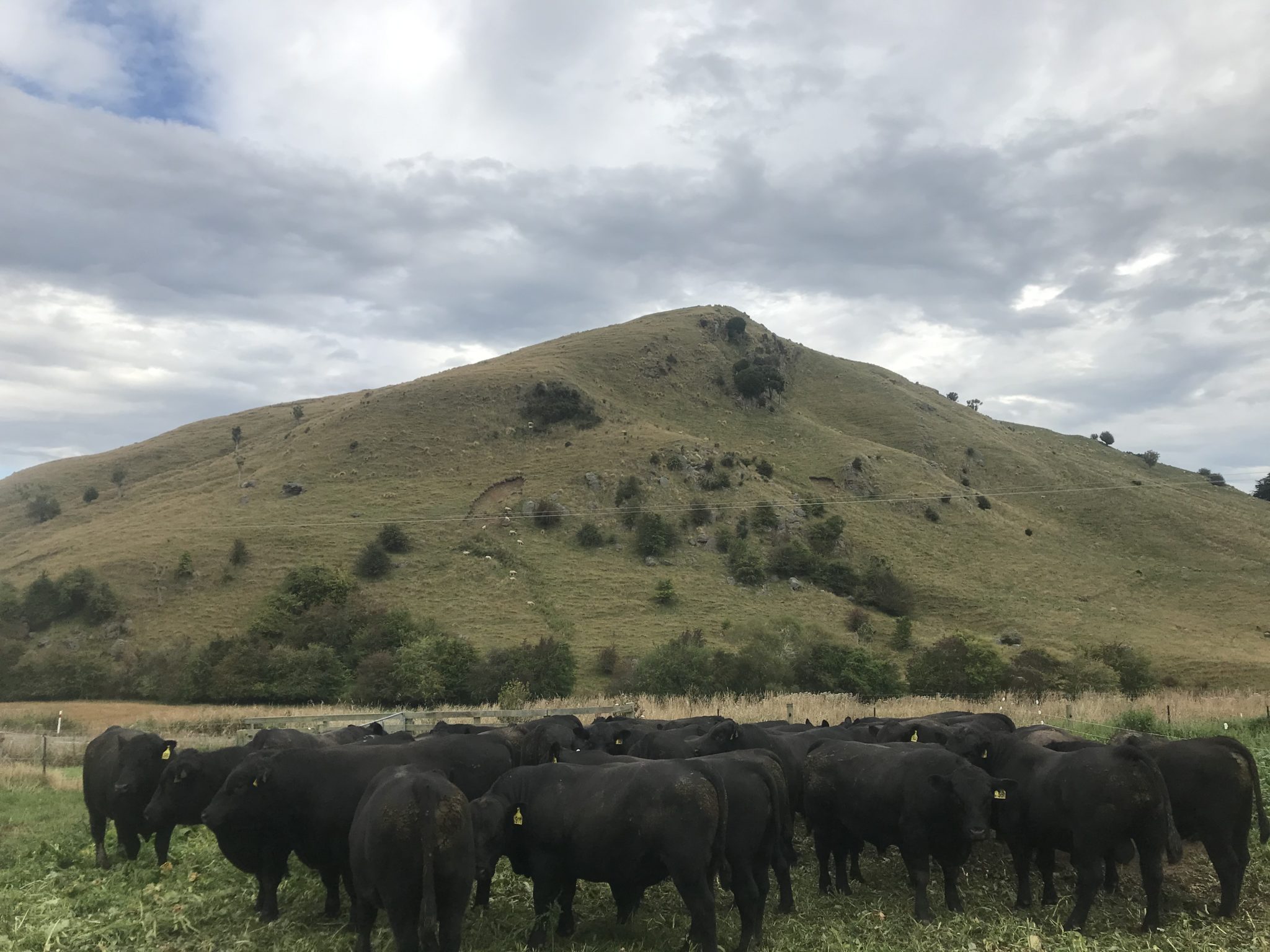
Artificial insemination has been used from the beginning and extensively over the past 30 years.
AI has allowed the family to access the genetics of bulls they want but couldn’t necessarily afford to buy outright.
After dabbling in American bloodlines initially they have been selecting largely NZ genetics with the exception being NZ bred sons of international sires that have a proven track record here.
They also personally inspect any sires that are used in their breeding programme.
“We trust in breeding cattle based on pedigree and family lines for performance and soundness. Balance is in the forefront of all of our decisions,” the family agree.
Mixed age cows are mated for two cycles with a mixture of AI and natural mating’s – anything not in calf is culled.
Chris does all the herd AI and says they’ve been achieving 80% hit rates with natural AI.
“We put a teaser bull out to promote a natural cycle.”

Chris says heifers are mated as yearlings and again as two-year-olds. Any heifer that doesn’t conceive is culled.
“When they produce two good calves, they then go into the AI programme.”
“Our cows are always under pressure so they have to perform. The only time they’re not under sheep pressure is when they calve.”
“All calves are tagged and weighed at birth, we record mothering ability and temperament and cull accordingly,” says Tom.
The family agree the female line is their focus and good bulls are the result of that policy.
They acknowledge they are tough on their own cattle.
“We want to produce a nice even line,” says Andrew.
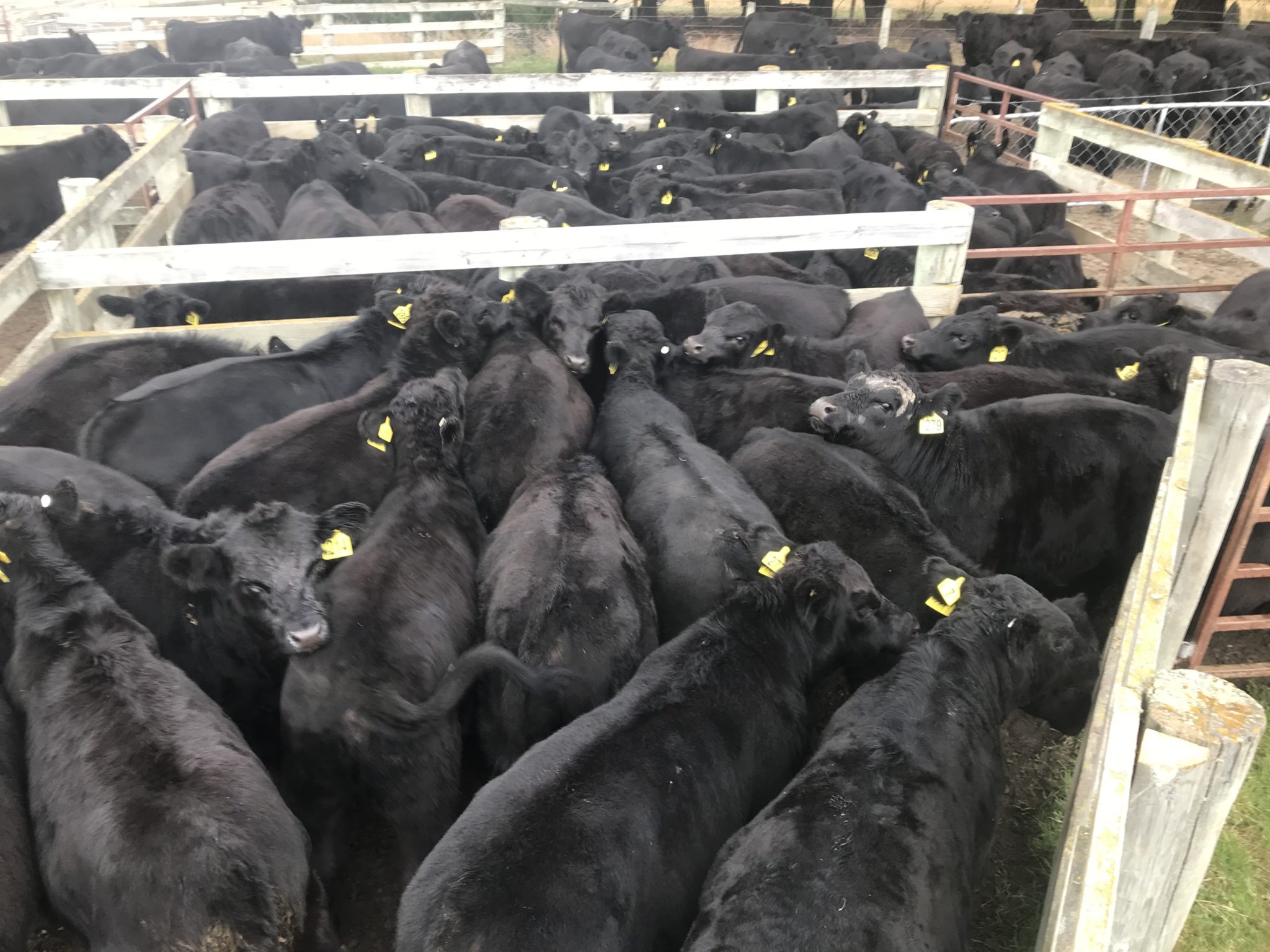
It’s an expectation and close to being a goal realised, that cows will wean a calf that’s at least half her body weight, the average cow weight at Waimara is 600kg.
“And every time they are in the yards they are being judged and appraised and we trace things back down the cow lines and we know which ones continually perform,” says Chris.
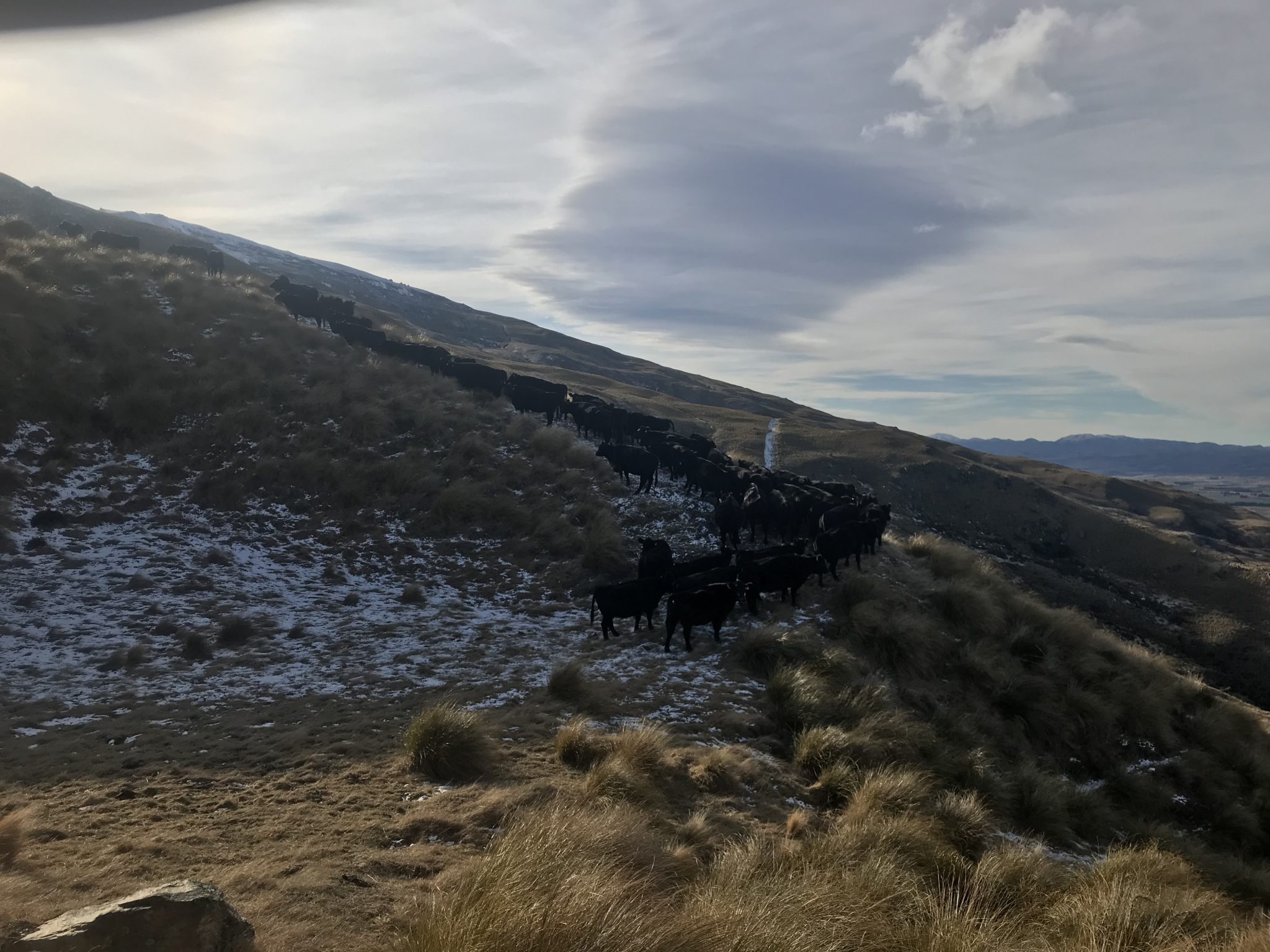
Calving takes place late August on the Tumai block and late September on the Middlemarch block and while the cows calve without sheep pressure, there is generally a mob of lambs just ahead of them.
February onwards is dry in the district with lambs grazing crops and the cattle cleaning up pastures. Tom says while it’s dry, they have good blocks with plenty of cattle tucker available.
Weaning occurs late March and from then on, the cows graze on standing hay.
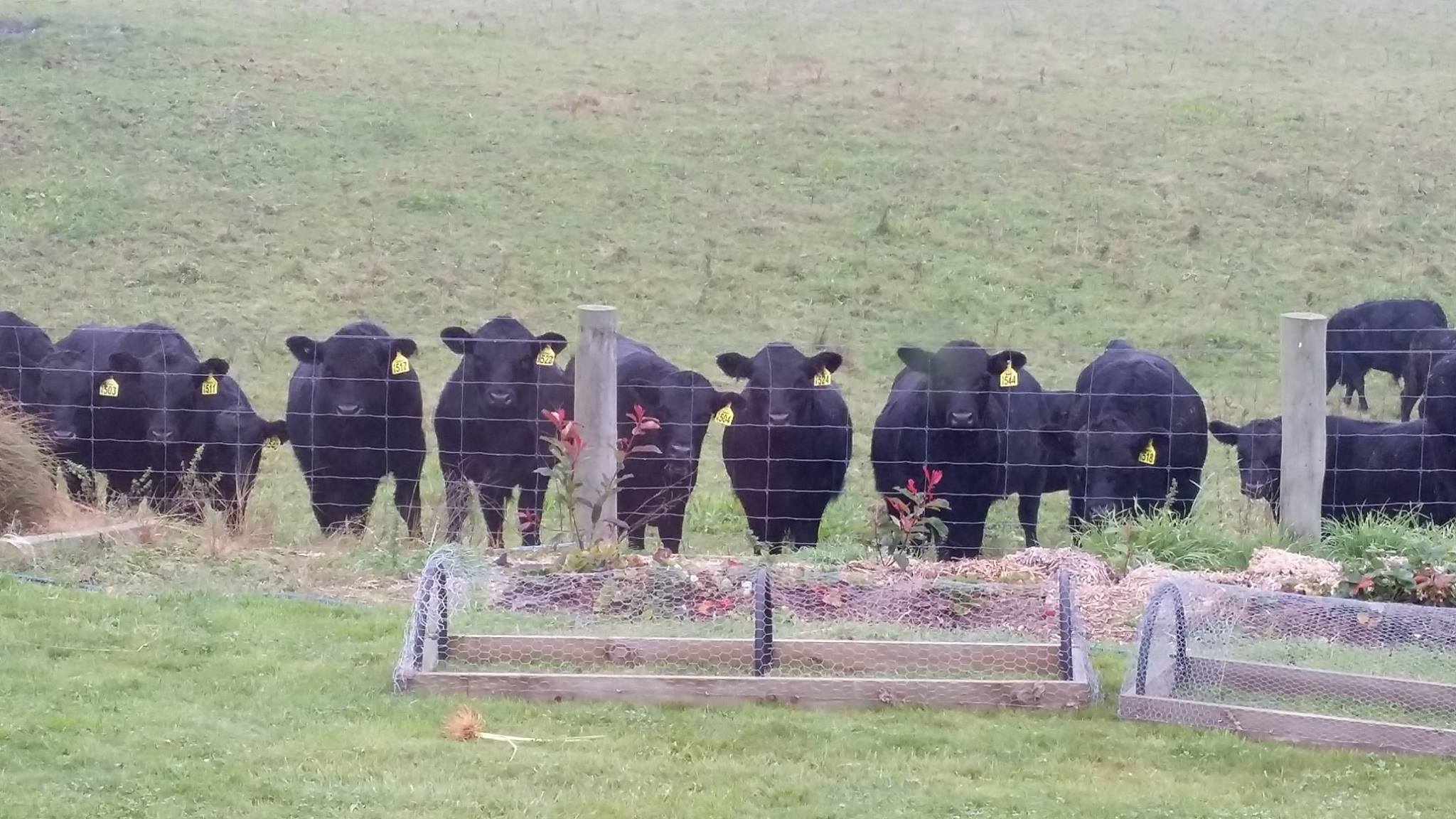
The yearling bulls are grazed on crops at Tom and Sally’s 51ha Palmerston property where they are grown out until sale time and are also supplemented with baleage.
TEMPERAMENT IS VITAL
Come sale day, the bulls are trucked up to Andy Denham’s where the Law family’s selection on temperament gets the ultimate test.
“We don’t tolerate anything with a poor temperament,” says Tom.
“We can’t have them arrive at Andy’s for them to perform in the sale pen. And we are sending those bulls out on to other people’s farms to be handled by their families and staff, so they have to be quiet.”
Kate says stock agent Roger Keach has been a big support and encouraged them to take the leap to host a sale.
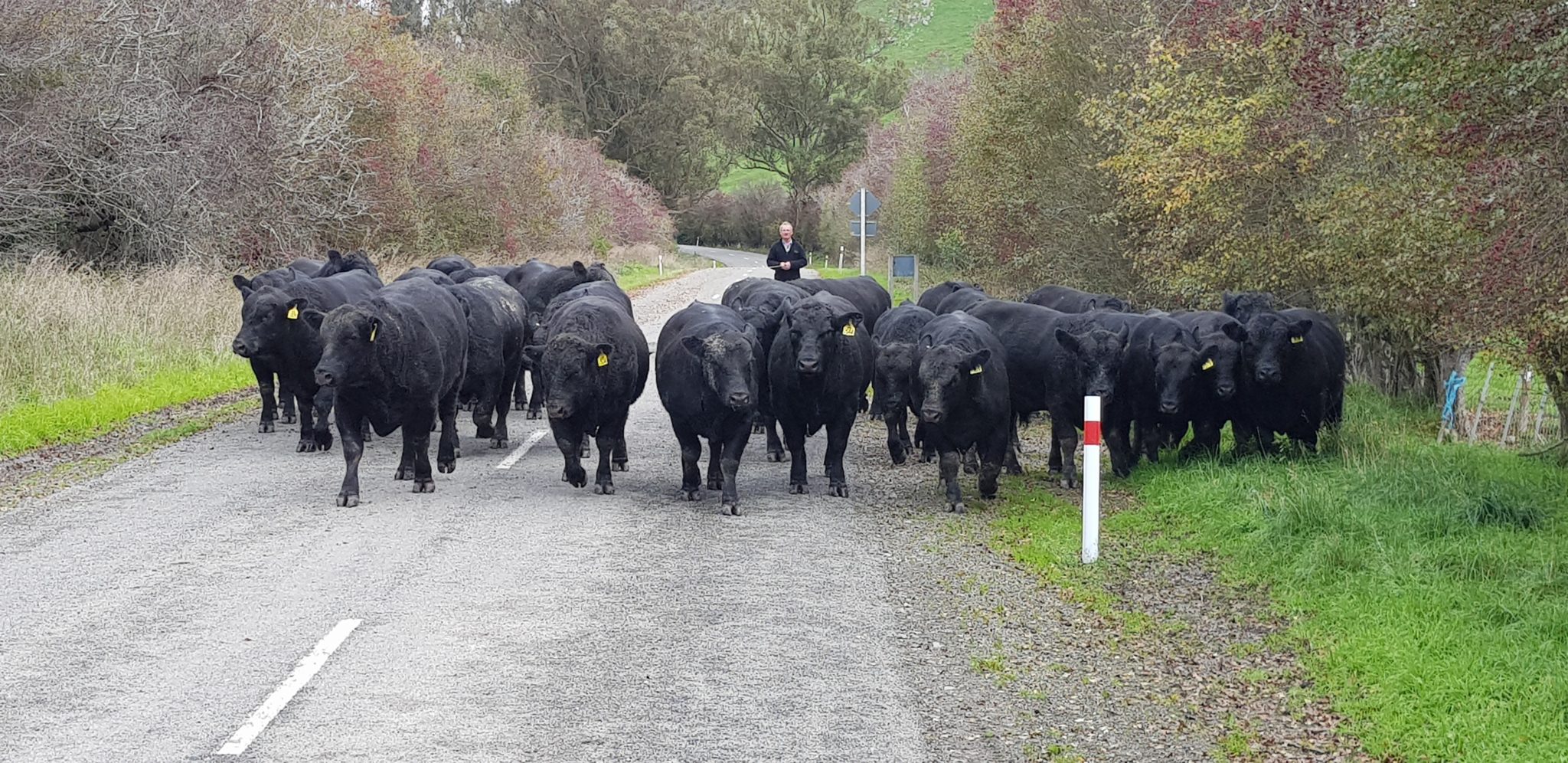
“He pushed us to take that step, he’s helped us reach that next level,” says Kate.
DNA testing has been used for the past 10 years along with muscle scanning and the family is also about to embark on an embryo transplant programme to help enhance genetic gains.
Sally says there is more they’d like to do with technology and they also have plans to make their business more environmentally sustainable. She says they are fencing off the five creeks that run through the Middlemarch property. They are also investigating the use of cow collars, which would work as an invisible break fence for the cows.
They want to work on sustainable farming both environmentally and financially.
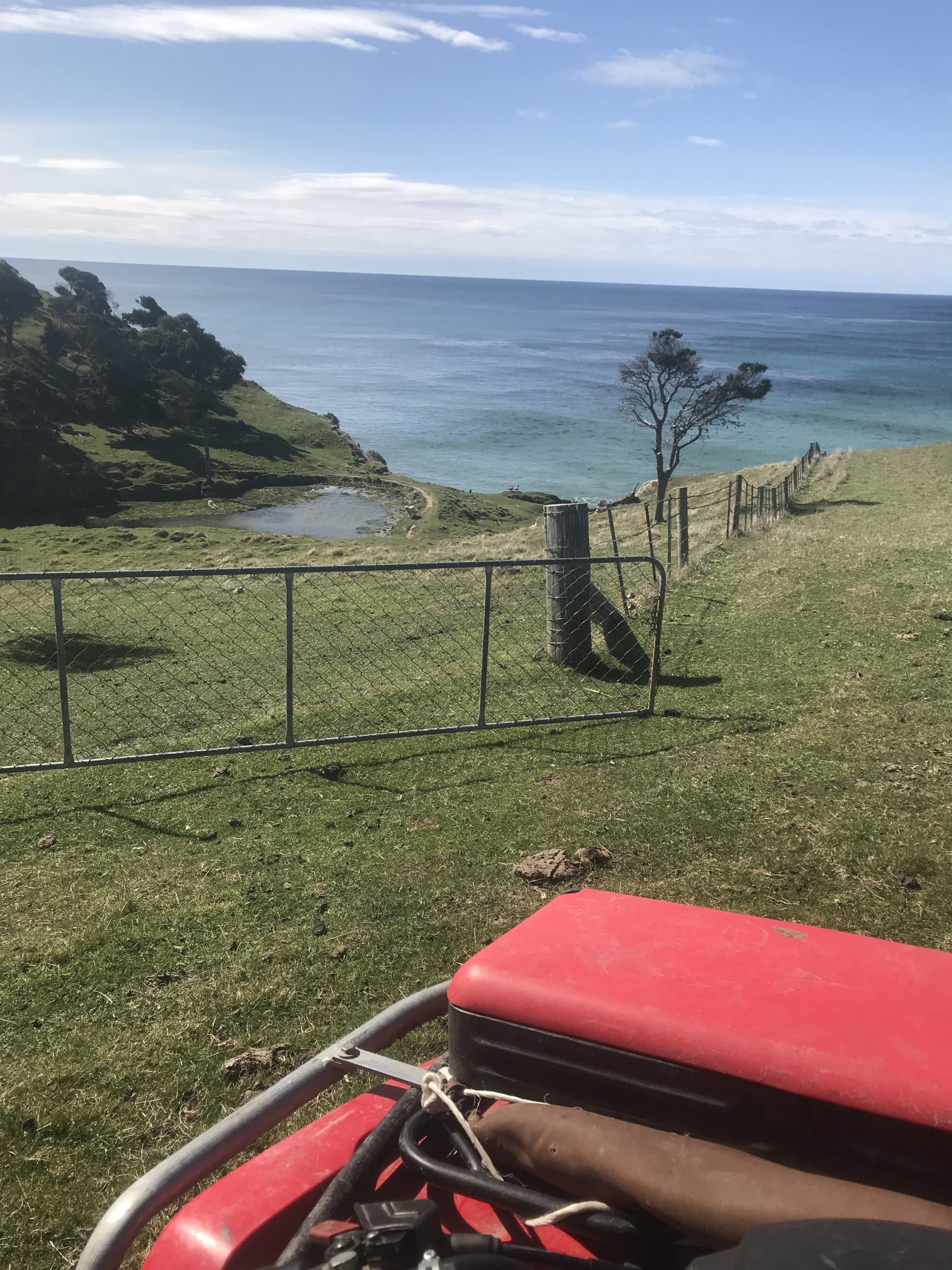
“We believe we are lucky enough to be here for a short time to be Kaitiaki of the land – to leave it in better shape than when we found it, but we also need to do this in a financially sustainably way to ensure we can continue doing what we love,” says Kate.
The family use StockBook and a TruTest wand and weighing platform and they’ve also taken up the HDK 50K test for any yearlings they use in their own herd and for any bulls bought in.
Kate says the HDK 50K test provides a bit more confidence when they are making bull selections as they’ve found it offers improved accuracy and a truer start point.
ROMNEY STUD GENETICS
Running alongside the Waimara Angus Stud is a recently established Romney stud – another livestock connection that’s been passed down through the generations.
They have 200 stud Romney ewes purchased from Paul Hickman and have sold their first rams in the 2020 ram selling season.
“We are breeding something we could find but not necessarily afford,” says Tom.
Kate is hands on with the Romneys, doing the lambing beat, tagging and record keeping.
There are also 1500 commercial Romney ewes that are running on the Middlemarch property, 2000 ewes at Tumai, plus the stud flock. The breeding philosophies of the beef herd are also applied to the sheep.
And the family say even though wool isn’t paying well, they have maintained the quality of their clip.
“While wool is cheap, people aren’t buying crap wool, and we believe it will come back,” says Sally a keen knitter of more than 50 years.
Off farm, the family is all very invested in their local community, undertaking voluntary work for numerous community organisations from the local school BoT and library to the Collie Club, the Southern Angus Ward and being active members of the RMPP, to name just a few.
Looking ahead the family’s short-term goal is to consolidate the three properties into one location.
“We’d like to get Mum and Dad set up somewhere to enjoy their retirement. But it will still be somewhere with the bulls as Dad will always need to be hands on with them.,” says Kate.

Chris has his sights set on working towards a ratio of 60% stud cattle and 40% sheep rather than the opposite, which is the current situation.
“Looking slightly further ahead, the goal is to increase land area to allow growth for both studs and to ensure there’s room for more family to come home and join us,” says Kate.
You can learn more about the Waimara Stud by visiting their website www.waimaraangus.co.nz and following them on Facebook https://www.facebook.com/Waimara-Angus-1588130521465339/

